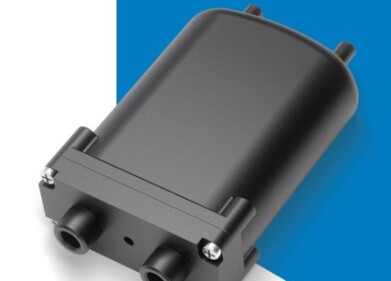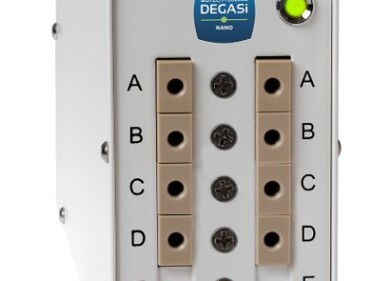Chromatography
First Online SPE-LC-MS Assay for Antibiotics in Milk
Jul 29 2009
A new fully automated, quantitative assay for beta-lactam antibiotics in milk has now been developed using online SPE-LC-MS/MS. A Spark Holland Symbiosis system for SPE-LC in combination with an Applied Biosystems-Sciex 3200 triple-quadrupole tandem mass spectrometer for MS/MS enables measurement of target compounds well below the Maximum Residue Limits set by the European Union. Ideal for food control and safety, this new developed method offers high sensitivity and accuracy of results, minimum sample pre-treatment, and for the first time uses an automated online SPE offering a high throughput analysis.
Lina Kantiani from the Department of Environmental Chemistry of IDAEA-CSIC in Barcelona, Spain, described the fully automated assay for beta-lactam antibiotics in milk. Using a range of target compounds (6 penicillins and 4 cephalosporins), quantitation in milk ranged from 0.09 ng/mL for ampicillin to 1.44 ng/mL for penicillin G. Manual sample handling is greatly reduced involving only the addition of internal standard and centrifugation. Simultaneous analysis of all compounds takes just 10 minutes resulting in significantly increased throughput.
The article concludes: “This analytical method presents an easy and cost-effective procedure for the identification and quantification of selected antibiotic compounds in raw milk samples and is a useful tool for the confirmatory analysis of these compounds in previous positively screened milk samples in routine food analysis.” Antibiotic residues in food products can result in increased bacterial resistance against antibiotic medicines, carcinogenic and allergic responses in consumers and disturbances in milk culturing processes.
Stringent legislation in Western countries requires the control and reduction of antibiotics residues in food and food producing animals in order to protect human health. Currently available test kits for screening
for antibiotics in food products can lack specificity producing only semi-quantitative results, which may lead to false positives. Food control labs, therefore, tend to rely more and more on LC-MS/MS based assays for reliable confirmative measurements of samples after a prior screening test. Thorough sample clean up is required before samples can be processed by LC-MS/MS, and because existing methods use off-line sample preparation methods such as liquid-liquid extraction or solid phase extraction (SPE), such assays are labour intensive and suffer from low throughput.
Digital Edition
Lab Asia 31.6 Dec 2024
December 2024
Chromatography Articles - Sustainable chromatography: Embracing software for greener methods Mass Spectrometry & Spectroscopy Articles - Solving industry challenges for phosphorus containi...
View all digital editions
Events
Jan 22 2025 Tokyo, Japan
Jan 22 2025 Birmingham, UK
Jan 25 2025 San Diego, CA, USA
Jan 27 2025 Dubai, UAE
Jan 29 2025 Tokyo, Japan



















